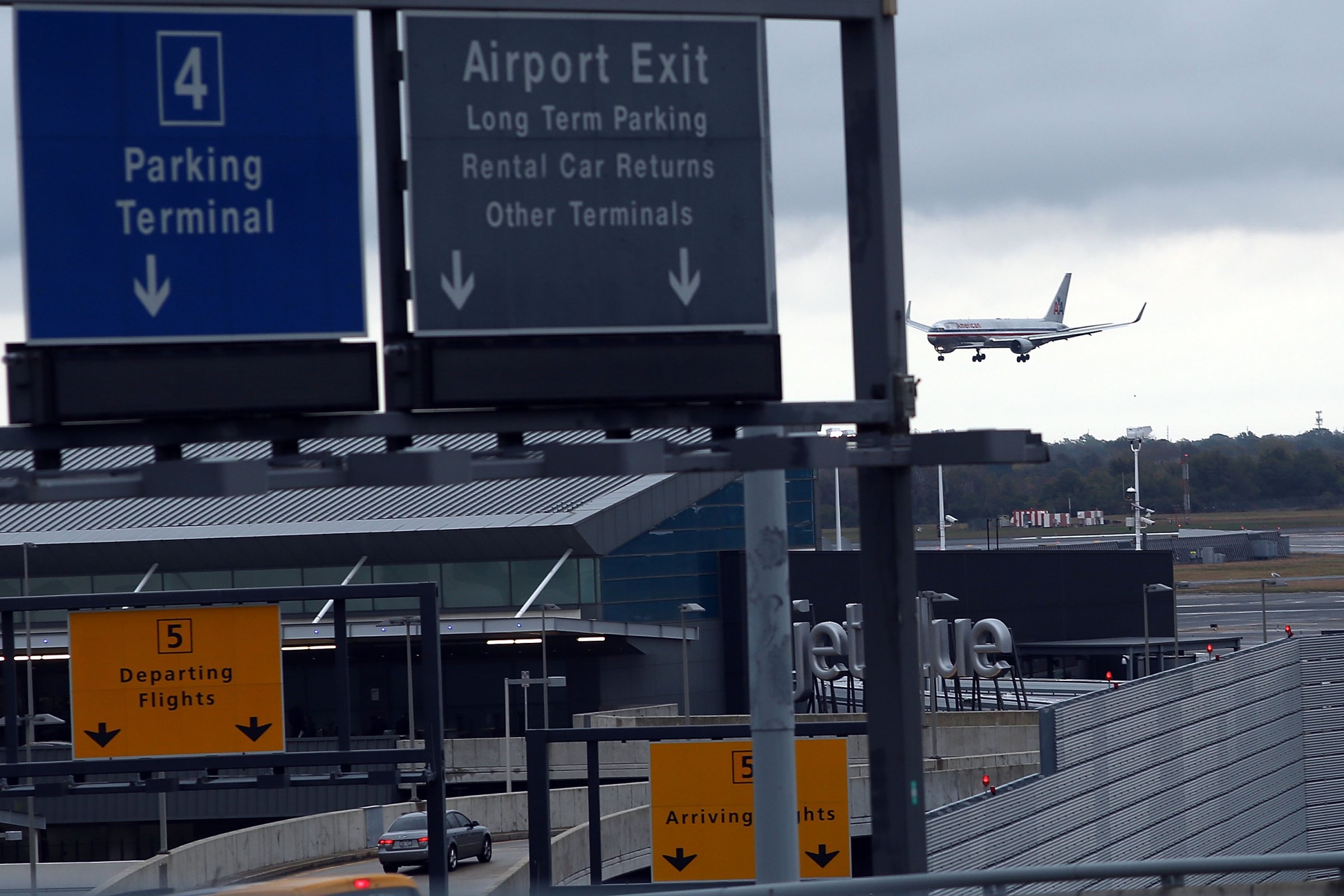
As the Ebola outbreak in West Africa escalated over the summer, the World Health Organization recommended airport screening as a way to contain spread of the disease. WHO advised that all people leaving the most severely affected countries—Guinea, Liberia and Sierra Leone—should have their temperatures taken and be asked about any Ebola-related symptoms they might have, including fever, headaches, vomiting and diarrhea.
Since the program began in August, more than 80,000 passengers have been screened as they left these countries, 12,000 of them headed for the U.S. Do the screenings work? In a report published in the MMWR, officials at the U.S. Centers for Disease Control reveal the latest information from the program.
Anyone with a fever or other symptoms—or who reported having a high risk of being exposed to Ebola, such as having contact with Ebola patients—was not allowed to fly. According to the CDC report, none of those who were denied boarding were diagnosed with Ebola. But two patients without symptoms when they left West Africa, Thomas Eric Duncan and Dr. Craig Spencer, eventually developed Ebola after arriving in the U.S.
The MMWR report also details the U.S.’s more stringent airport entry screening for all passengers arriving from the three affected countries. Beginning Oct. 11, all passengers coming to the U.S. from these countries were required to fly into one of five airports: John F. Kennedy International Airport in New York, Newark Liberty International Airport in New Jersey, Washington-Dulles International Airport, Chicago O’Hare International Airport or Hartsfield-Jackson Atlanta International Airport. They are also required to take their temperatures for 21 days, the incubation period for the Ebola virus, and report them to local health officials. The designated airports are equipped with trained public health personnel who meet passengers and provide them with a kit to help them record their temperatures, as well as educate them about who to call if they develop symptoms.
From Oct. 11 to Nov. 10, 1, 993 passengers were screened this way, and 4.3% were referred to the CDC for additional evaluation. Seven people had symptoms and were referred to proper medical personnel, but none developed Ebola. “Using these processes to educate each traveler and then link the traveler to public health authorities for the duration of the incubation period is of critical importance to facilitate rapid detection of illness and implementation of appropriate public health control measures,” the authors write.
But the most effective way to prevent the epidemic from spreading is to control it at its source. In a separate MMWR report, researchers at the CDC say that their first assessment of Ebola infection and control in Sierra Leone reveals many gaps. In a review of six of the 14 districts in Sierra Leone that are affected by Ebola, the CDC Ebola Response Team found that none had a dedicated infection control supervisor to oversee training and implementation of infection control procedures, such as wearing protective equipment and isolating patients. There were also no national, district or facility standards for infection control, and screening of patients for Ebola was inadequate. All districts also lacked sufficient personal protective equipment, the gear that is critical for protecting health care workers treating Ebola patients, and many did not have running water, enough chlorine bleach to sanitize contaminated objects, or incinerators for burning disposable medical waste.
“An increasingly coordinated and comprehensive [infection and prevention control] program with district and health facility level support is urgently needed to prevent Ebola in districts where the prevalence is low and to strengthen the existing…response in areas with high prevalence of Ebola,” the CDC officials write.
More Must-Reads from TIME
- Donald Trump Is TIME's 2024 Person of the Year
- Why We Chose Trump as Person of the Year
- Is Intermittent Fasting Good or Bad for You?
- The 100 Must-Read Books of 2024
- The 20 Best Christmas TV Episodes
- Column: If Optimism Feels Ridiculous Now, Try Hope
- The Future of Climate Action Is Trade Policy
- Merle Bombardieri Is Helping People Make the Baby Decision
Contact us at letters@time.com